Breast Reconstruction in South Korea
Search and Compare the Best Clinics and Doctors at the Lowest Prices for Breast Reconstruction in South Korea

Find the best clinics for Breast Reconstruction in South Korea
With Medijump you can browse 21 facilities offering Breast Reconstruction procedures in South Korea. The cheapest price available is $8,500 in Seoul. And for the cheapest price globally, prices start from $477 in India.
Breast Reconstruction in Seoul
Price: $ 8,500
Breast Reconstruction in Daejeon
Price: $ 8,781
India offers the best prices Worldwide
Price: $ 477
Image Plastic Surgery, located in Dogok dong, Seoul, South Korea offers patients Breast Reconstruction procedures among its total of 13 available procedures, across 1 different specialties. Currently, there's no pricing information for Breast Reconstruction procedures at Image Plastic Surgery, as all prices are available on request only, whilst the national average price is approximately $8,750. There is currently a lack of information available on the specialists practicing at the Hospital, and they are not accredited by any recognized accreditations institutes
- Home
- South Korea
Compare Before & After Photos of _procedure_photos.phpBreast Reconstruction
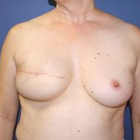
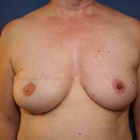
Front view
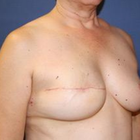
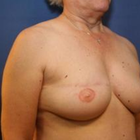
Half-side view
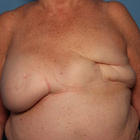
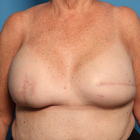
Front view
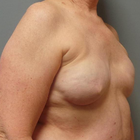
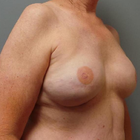
Half-side view
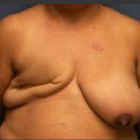
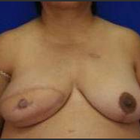
Front view
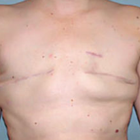
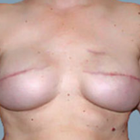
Front view
WHY US?
At Medijump, we're making medical easy. You can search, compare, discuss, and book your medical all in one place. We open the door to the best medical providers worldwide, saving you time and energy along the way, and it's all for FREE, no hidden fees, and no price markups guaranteed. So what are you waiting for?

Free

Best Price

Widest Selection

Risk-Free
What you need to know about Breast Reconstruction in South Korea
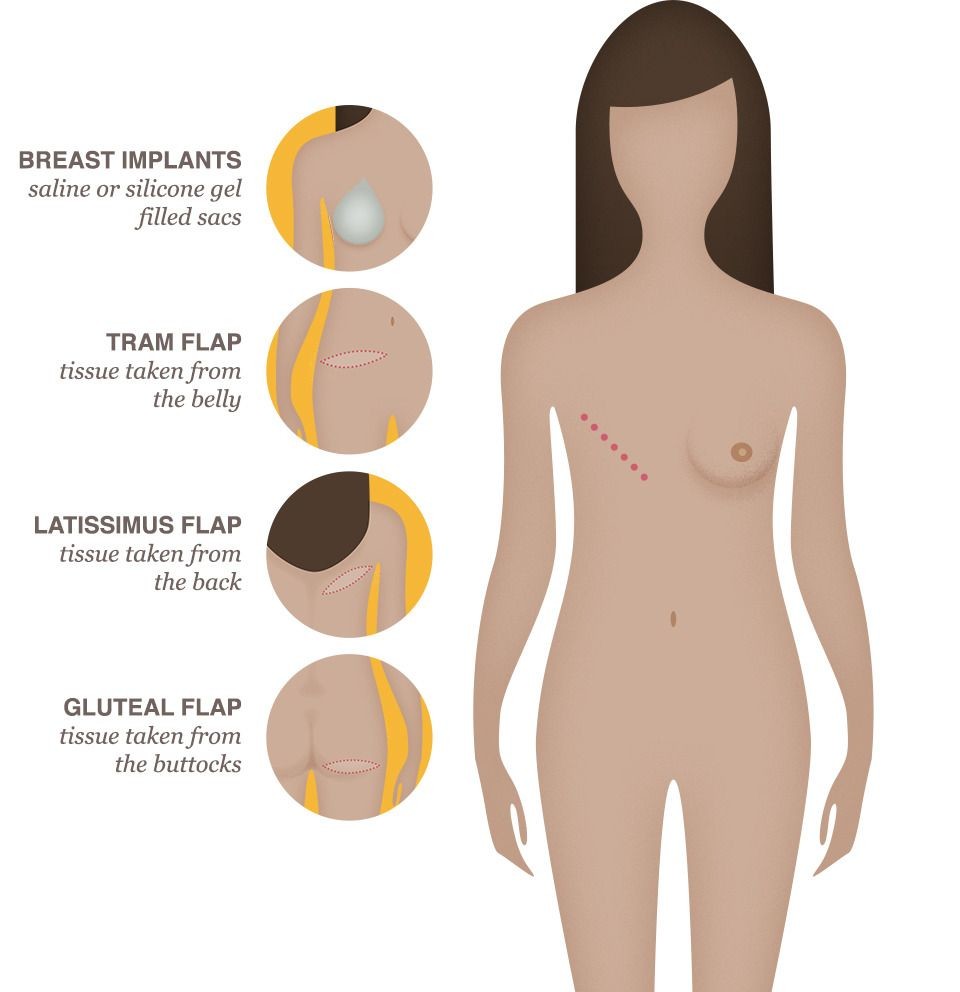
Breast reconstruction is a significant surgery undertaken to rejuvenate the physical form of a woman's chest after losing one or both breasts to cancer or another disease. In South Korea, medical centres are well-equipped with top-tier talent in plastic surgery to facilitate this intricate procedure. Every woman's journey is different, and her treatment plan is personalized, considering her unique circumstances and needs.
It's heartening to know that breast cancer treatments like chemotherapy or radiation therapy aren't impeded by reconstruction. Moreover, this surgery doesn't spike the risk of cancer coming back. Undeniably, breast reconstruction is a major surgery with inherent risks, including chances of infection, complications with wound healing, and potential dilemmas related to implants.
What is the cost of Breast Reconstruction in South Korea?
Undergoing surgery like Breast Reconstruction brings along a financial commitment. The expense varies extensively, depending on many factors like the complexity of the procedure, the medical professional performing the surgery, the hospital's facility, and the region, amongst others. Generally, the cost might range between $15,000 to $50,000, including multiple surgeries or intricate techniques within this estimate.
Thankfully, in many cases, insurance plans cover such surgical procedures, especially given mandates like the Women's Health and Cancer Rights Act of 1998 in the U.S. Still, out-of-pocket expenses associated with co-payment or deductibles can add up. It's recommended to navigate these aspects with your insurance provider and your chosen healthcare facility in South Korea.
What does a Breast Reconstruction Procedure Involve?
Breast reconstruction generally happens in stages, starting with the most complex first, which may either occur at the same time as the mastectomy or later, based on the individual’s specific health conditions or treatment plan.
Two main techniques are employed in breast reconstruction. One is the use of an implant, saline, or silicone to recreate the breast shape. Two, autologous or flap reconstruction where tissue from the patient’s body like the abdomen or thigh is relocated to recreate the breast shape. The method selected is dependent on individual factors like the patient’s health, personal choice, cancer type, and stage.
After the primary surgery and post an adequate healing period, the surgeon performs a second procedure to recreate the nipple and areola. Later, to give it a natural look, the nipple-areola complex is tattooed. Remember that although it is a common procedure, complications might arise involving reaction to anaesthesia, bleeding, infection, poor healing or the need for further interventions.
How Long Should I Stay in South Korea for a Breast Reconstruction Procedure?
Post-breast reconstruction surgery, patients typically stay in the hospital for two to five days. However, if the reconstruction was done immediately after the mastectomy, the stay could extend from three to six days.
Overall, a patient should expect to remain in South Korea for approximately two weeks post-surgery. This allows enough time for necessary follow-ups and to address any complications, if they arise. As with any major surgical procedure, do not hasten the healing process.
What's the Recovery Time for Breast Reconstruction Procedures in South Korea?
The recovery timeframe for breast reconstruction procedures in South Korea varies from patient to patient. Generally, for implant-based procedures, patients may take about four to six weeks to recuperate before they return to normal routines. For more complex autologous techniques, particularly those using abdominal tissue, patients might require six to eight weeks for recovery.
Recovering patients need to temper their activities during this period. Avoid lifting heavy objects and defer strenuous exercise until your physician gives a clear signal. Medical assistance should be promptly sought if any discomforting symptoms like chronic pain, redness or swelling surface.
What's the Success Rate of Breast Reconstruction Procedures in South Korea?
Medical success cannot just be measured in terms of complication-free postoperative progress or longevity of implants used in breast reconstruction. Patient satisfaction with their surgery, their psychological well-being following the operation, their perception of body image, and their quality of life post-surgery are equally important factors to consider. Studies indicate that between 85% to 90% of women who have undergone breast reconstruction are satisfied with the long-term results.
In South Korea, dedicated hospitals and healthcare facilities strive to offer high-quality treatment, ensuring the best possible surgical outcomes using progressive technology and experienced professionals. Still, everyone's response to surgery varies, and outcomes depend on factors such as overall health, age, body type, and compliance with surgical advice.
Are there Alternatives to Breast Reconstruction Procedures in South Korea?
Indeed, there are alternatives to breast reconstruction in South Korea. The journey of every woman is unique and how she chooses to deal with the loss of a breast, or both, is a highly personal decision. Alternatives include:
- Breast Prostheses or Forms: They are silicone forms that imitate the appearance and feel of natural breast tissue. They come in diverse sizes, shapes and colours to closely match the woman's skin tone.
- Flat Closure: In this method, the surgeons sew up the chest wound smoothly, without constructing a breast mound. This option appeals to women who choose not to have more surgeries or body implants.
- Opting not to undergo reconstruction at all, also termed as "going flat: This method exhibits the woman's choice to live comfortably with her new body shape without artificial substitutes or further surgeries. It is a fully personal decision deserving respect and support.
Each of these options has pros and cons, and the choice depends on the woman’s personal preference, health status, lifestyle, and perception of her body. Regardless of the choice, it’s important to regularly monitor breast health and engage in practices that promote overall wellness.
What Should You Expect Before and After the Breast Reconstruction Procedure?
Before the surgery, comprehensive discussions with the surgeon will take place to understand treatment objectives, outcomes, and possible complications. Preoperative tests, lifestyle modifications, and nutritional advice may form a part of the preparatory process.
Postoperative care is equally important: discomfort, swelling, and bruising are normal and subside over time. Pain management strategies will be provided to help you manage discomfort effectively. Your surgeon will provide personalised guidance on caring for your surgical site, usage of medications, and physical activities.
What sort of Aftercare is Required for Breast Reconstruction Procedures in South Korea?
The following points should be considered post-operation:
- Follow the instructions given by your doctor and take your medicines as and when prescribed.
- Consult a nutritionist for a diet plan. A healthy diet helps you recover faster.
- Do not wear a padded or underwire bra until allowed by your doctor.
- Use surgical bras in the early few days after the surgery.
- Avoid excessive unnecessary movement of your breasts.
- Do not lift heavy objects and children - it could stretch on your stitches.
- Change your bandage whenever it gets dirty. Germs can cause infection.
- Do not take a bath when the bandages are still intact. A wet bandage can also be the cause of infection.
- Abstain from sexual activity for at least 6 weeks.
- Take rest - give yourself time to recover.
How Do I Prevent Cancer from Recurring?
Preventing cancer recurrence largely revolves around a balanced, healthy lifestyle coupled with regular medical check-ups. Regular exercise, maintaining a healthy weight, and eating nutritiously can contribute to cancer prevention. Smoke cessation and limiting exposure to secondhand smoke are crucial for both prevention and postoperative recovery.
Regular breast self-examinations, as well as mammograms and follow-up visits, are critical for early detection of any recurrence. Stress management techniques like yoga, meditation, and spending time in nature can also play an essential role in overall health.
Your medical team in South Korea is there to support you, offering advice tailored to your individual health status and medical history. Remember, proactive health checks are key to maintaining overall health and preventing the recurrence of diseases like cancer.
What is the ideal time to have Breast Reconstruction surgery after a Mastectomy in South Korea?
The decision regarding when to have Breast Reconstruction following a Mastectomy in South Korea is largely based on the individual's health status, treatment plan, personal preferences, and discussions with the oncology team. Breast reconstruction can be done at the time of mastectomy (immediate reconstruction) or at a later date (delayed reconstruction). Immediate reconstruction might offer psychological benefits and less overall surgery since both procedures are done together. Yet, if additional treatments such as radiation therapy are required post-mastectomy, opting for delayed reconstruction could be advisable to avoid risks posed by radiation to the new construct.
Remember that deciding on the timing of breast reconstruction is a personal choice and should be made in consultation with your healthcare providers. They can provide specific guidance based on your health condition and treatment plan.
How Will Breast Reconstruction in South Korea Impact My Routine Mammograms and Breast Cancer Detection?
Breast reconstruction surgery may impact the way routine breast cancer screenings are conducted. After a mastectomy with or without reconstruction, women usually don't need routine screening mammograms on the treated side since all breast tissue has been removed. However, they would need routine mammograms for the untreated breasts.
If you've had reconstruction using your own body tissue, your surgeon or oncologist will guide you on whether or not you'll require mammograms on the reconstructed breast. Remember, mammograms can still be performed on reconstructed breasts, and self-breast exams should be a regular part of your health routine.
Whilst the information presented here has been accurately sourced and verified by a medical professional for its accuracy, it is still advised to consult with your doctor before pursuing a medical treatment at one of the listed medical providers
No Time?
Tell us what you're looking for and we'll reachout to the top clinics all at once
Enquire Now

Popular Procedures in South Korea
Prices Start From $497

Prices Start From $208

Prices Start From $834

Prices Start From $500

Prices Start From $93

Prices Start From $85

Recommended Medical Centers in South Korea for Breast Reconstruction

- Interpreter services
- Translation service
- Religious facilities
- Medical records transfer
- Medical travel insurance
- Health insurance coordination
- TV in the room
- Safe in the room
- Phone in the room
- Private rooms for patients available

- Interpreter services
- Translation service
- Religious facilities
- Medical records transfer
- Medical travel insurance
- Health insurance coordination
- TV in the room
- Safe in the room
- Phone in the room
- Private rooms for patients available

- Interpreter services
- Translation service
- Religious facilities
- Medical records transfer
- Medical travel insurance
- Health insurance coordination
- TV in the room
- Safe in the room
- Phone in the room
- Private rooms for patients available

- Interpreter services
- Translation service
- Religious facilities
- Medical records transfer
- Medical travel insurance
- Health insurance coordination
- TV in the room
- Safe in the room
- Phone in the room
- Private rooms for patients available

- Interpreter services
- Translation service
- Religious facilities
- Medical records transfer
- Medical travel insurance
- Health insurance coordination
- TV in the room
- Safe in the room
- Phone in the room
- Private rooms for patients available

- Interpreter services
- Translation service
- Religious facilities
- Medical records transfer
- Medical travel insurance
- Health insurance coordination
- TV in the room
- Safe in the room
- Phone in the room
- Private rooms for patients available

- Interpreter services
- Translation service
- Religious facilities
- Medical records transfer
- Medical travel insurance
- Health insurance coordination
- TV in the room
- Safe in the room
- Phone in the room
- Private rooms for patients available

- Interpreter services
- Translation service
- Religious facilities
- Medical records transfer
- Medical travel insurance
- Health insurance coordination
- TV in the room
- Safe in the room
- Phone in the room
- Private rooms for patients available

- Interpreter services
- Translation service
- Religious facilities
- Medical records transfer
- Medical travel insurance
- Health insurance coordination
- TV in the room
- Safe in the room
- Phone in the room
- Private rooms for patients available

- Interpreter services
- Translation service
- Religious facilities
- Medical records transfer
- Medical travel insurance
- Health insurance coordination
- TV in the room
- Safe in the room
- Phone in the room
- Private rooms for patients available
Breast Reconstruction in and around South Korea
About South Korea
South Korea’s population is 51 million and it's capital Seoul is a major world city. 50 percent of the country’s population lives within the Seoul Capital Area which includes Seoul, Incheon, and Gyeonggi-do. The capital is situated in the north-west region of the country.
The Republic of Korea has immense potential for medical tourism with futuristic hospitals, sophisticated technologies, and advanced procedures. The government is taking all measures to make the country a top medical tourism destination. By 2022, it is looking to receive 998,000 medical tourists in the country.
Tourists from the USA, UAE, and Japan travel to Korea for affordable treatments. Some medical institutions in South Korea offer price packages, especially for plastic surgery, and help the medical tourist to save up to 40 percent on the treatment, even after adding travel and accommodation costs.
The Country has 27 accredited JCI-certified state-of-art hospitals. Severance Hospital, Seoul National University Hospital, and JK Plastic Surgery Centre are the most renowned hospitals within South Korea for medical tourism. The Doctors are well-educated to international standards of certifications and training.
The country is popular for treatments and procedures in several medical specialties, with an excellent track record for success and survival rates. Cancer treatment, plastic surgery, cardiovascular procedures, orthopedics, and preventive health check-ups are the top five areas for medical tourism in Korea.
Popular Parts of South Korea
When considering South Korea, it would be a mistake to overlook its many offerings that stretch way beyond the confines of its dynamic capital, Seoul. This vibrant nation is the embodiment of a perfect blend of advanced urban slickness, serene yet majestic rustic charm, awe-inspiring scenic beauty, and serene coastal landscapes with pristine beaches. Everywhere you go, each region unravels a story and invites you to become part of its unique narrative.
Notably, South Korea teems with places that make for intriguing and memorable visits. These locales, scattered across the country, are an intriguing cocktail of experiences, extending from modern high-tech cities shrouded in electrifying energy to tranquil, time-honoured folk villages nestled amongst nature's wonder, where tranquillity prevails and tradition holds sway.
- Seoul – The capital city is a mix of pop and party culture, modern architecture, scenic parks, and glittering promenades and it is also rich in history and culture. The National Museum, War Memorial, Changdeokgung Palace, and Bukchon Hanok Village are some of the key attractions in Seoul.
- The Korean Demilitarized Zone (DMZ) – DMZ is one of the most important places in South Korea as you will get a better knowledge of the troubles between North and South. When you book a DMZ 3rd tunnel tour, make sure it includes the tram ride up and down the tunnel, or you will be in for a long walk. You can also get a glimpse of North Korea from the Observation Post in DMZ.
- Busan - Is the second largest city of South Korea and is well known for hosting Asia’s biggest international film festival. It is also a unique blend of modern skyscrapers, majestic mountains, picturesque beaches, and magnificent Buddhist temples. Haedong Yonggungsa Temple and the Jagalchi fish market are some of the popular sites.
- Jeju Island –Has beautiful white sandy beaches, volcanic craters, and lava caves, and the botanical gardens will take your breath away. Hyeopjae & Hamdeok beach, Cheonjiyeon Waterfalls, and Seongsan Sunrise Peak are some of the interesting places on this island.
- Gyeongju –This coastal city has a large collection of cultural and historical sites dating back a thousand years. It gives you a peek into its cultural roots through the UNESCO World Heritage site, Bulguksa Temple, and the National Museum.
Seoraksan National Park, Incheon, and Pyeongchang County are a few other places to visit in South Korea.
Weather and Climate in South Korea
South Korea's climate is particularly noteworthy as it is blessed with distinct four seasons, each acquiring a unique charm. The rhythm of nature's cycles is quite pronounced and experienced vividly throughout the country. Spring flamboyantly arrives with blooming flowers and warmth, followed by summer's bright and sunny constitution. Autumn then takes over, painting the landscapes with artistic hues of red and gold, and finally, winter wraps up the cycle by painting the country white with its quiet snowfall.
- Summers are from June to August and are hot, humid, and rainy. There can be heavy rainfall in July and August.
- Winters are from late November to mid-March. During winter, it is freezing cold in the north and the interiors and mild along the southern coasts and snowfalls are rare.
- Spring is from mid-March to May. It is cold at the beginning of the season and gradually becomes milder. Rainfall becomes more frequent with the formation of low-pressure systems.
- Autumn is from September to late November and this is a pleasant season and during October the highest temperature is around 68 to 72°F. Rainfall is considerably less than in spring.
The average temperature in Seoul in January is around 73.4 to 81.5°F and in July its 71° to 75°F.
Getting Around in South Korea
Incheon International Airport at Seoul handles many daily flights from North America. Many of which are non-stop from San Francisco, Los Angeles, and Atlanta. Korean Air, United, and Delta Airlines operate a lot of these flights. Seoul is also reachable from its other Asian neighbors, Europe, and the middle-east. Other international airports in South Korea are located in Busan, Cheongju, and Jeju.
Gimpy International Airport, also in Seoul, handles domestic flight operations. You can connect to the Seoul Subway System, and to Incheon Airport by the Arex Train System.
Train travel is the most convenient and economical way to get around in South Korea. You can buy a KORAIL rail pass when you arrive at the airport. South Korea’s high-speed bullet train, the KTX, connects Seoul to Busan within 3 hours and It also connects to the other major cities within South Korea.
The Seoul Bus Terminal and the Central City Terminal operate buses to all of the cities. Bus travel is inexpensive and efficient, and fairly empty traveling to the smaller cities. Renting a car is also an option, but expensive.
Tourist Visas in South Korea
South Korea has an agreement with 117 jurisdictions for a visa-waiver. Visitors from countries under the visa-waiver program, such as the USA, Japan, EU countries, and New Zealand can enter the country without a tourist visa. Tourists can stay for up to 90 days with a valid passport. Canadians can enter visa-free and stay up to 180 days.
For citizens hailing from most Asian countries, including India and China, and also from Russia, planning a trip to South Korea involves obtaining a tourist visa. The South Korean government enforces travel protocols that require individuals from these nations to secure proper documentation prior to their visit, ensuring that travel regulations are adhered to and creating a simple and systematic process.
This prerequisite visa policy is a standard procedure which intends to streamline the influx of tourists and visitors from these specific nations. Each application undergoes a careful assessment to guarantee that all rules and regulations proposed by the South Korean authorities are in place. It constitutes a critical aspect of aiding security measures, maintaining immigration transparency, and promoting cultural exchange in a regulated manner. Thus, it is an imperative that citizens of these countries, such as India, China, and Russia, procure a tourist visa before embarking on their journey to discover the marvels of South Korea.
Additional Information
- Korean Republican Won (KRW) is the currency of Korea. One US dollar converts to 1,342.95 KRW.
- You can exchange most of the major currencies to KRW in banks and currency exchanges. US dollars and Euros are the easiest to convert.
- You can withdraw money from the many ATMs. Or you may even use credit cards for payments in South Korea.
- Korean and Korean Sign Language are the official languages of South Korea. Hangul is the formal script.
- 56.9% of the people are non-religious. Among the religious population, the majority are Christians. Others follow Korean Buddhism.
- The culture of South Korea is a blend of ancient Korean culture with ancient Chinese and Japanese cultures. Respect for elders is an important aspect of their culture.
- New Year Day (falls in February as per lunar calendar), The Birthday of Buddha (early May), Independence Day (March 1), Memorial Day (June 6), Constitution Day (July 17) are a few important holidays in the Republic of Korea.
Popular Searches
- Plastic Surgery in Thailand
- Dental Implants in Thailand
- Hair Transplant in Thailand
- Breast Augmentation Thailand
- Gastric Sleeve in Thailand
- Gender Reassignment Surgery in Thailand
- Laser Hair Removal in Bangkok
- Botox in Bangkok
- Dermatology in Bangkok
- Breast Augmentation in Bangkok
- Coolsculpting in Bangkok
- Veneers in Turkey
- Hair Transplant in Turkey
- Rhinoplasty in Turkey
- Stem Cell Therapy in Mexico
- Rhinoplasty in Mexico
- Liposuction in Mexico
- Coolsculpting in Tijuana
- Rhinoplasty in Korea
- Scar Removal in Korea
- Gastric Sleeve in Turkey
- Bone Marrow Transplant in India
- Invisalign in Malaysia
- Plastic Surgery in the Dominican Republic
- Tummy Tuck in the Dominican Republic
- Plastic and Cosmetic Surgery in Poland
- Rhinoplasty in Poland
- Hair Implant in Poland
- Dental Implants in Poland
- IVF in Turkey
